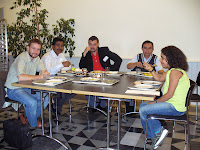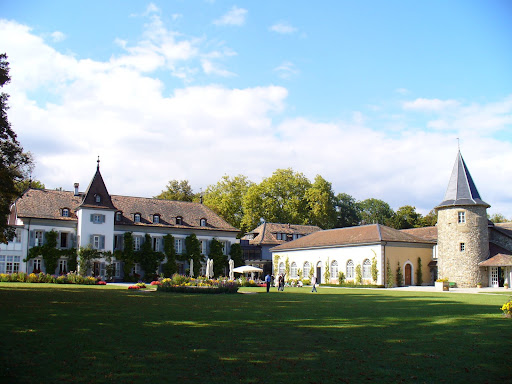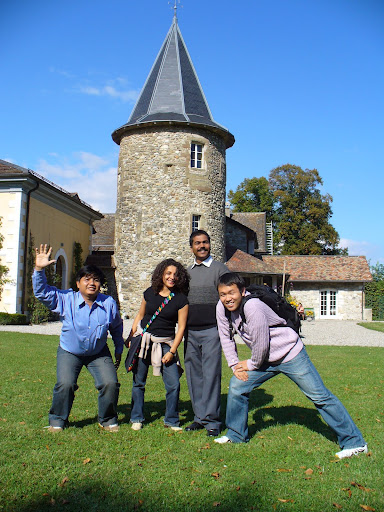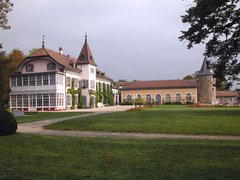 So, as you’ve gathered by now, maintaining a blog clearly isn’t one of my strong suits. If you’re reading this right now, thanks for not giving up on me entirely and for still checking in from time to time.
So, as you’ve gathered by now, maintaining a blog clearly isn’t one of my strong suits. If you’re reading this right now, thanks for not giving up on me entirely and for still checking in from time to time.If the blog entries have been few and far between, it’s certainly not because there’s not much going on around here. The autumn was, of course, full of studies. We covered everything from the churches’ mutual recognition of baptism to the 1910 World Missionary Conference in Edinburgh, polygamy to Hinduism. A rather wide-ranging array of topics, as you can see. Now the focus is on term papers. For those of you who might be interested, I’m doing a comparative study of the missiological implications of the eucharistic liturgy in the Orthodox and Anglican traditions, and another paper on the impact of the Vatican document Dominus Iesus on Anglican-Roman Catholic dialogue in Canada. (Any non-churchy friends reading this are forgiven for perhaps nodding off just now.)
Alongside studies, there was the ongoing joy and challenge of building a community of about 30 people from different parts of the world, different cultural backgrounds, and different traditions of the church. As one might expect, there have been some growing pains along the way. But our motley crew of Christians seems to have gelled together in its own unique way. I mentioned in a previous entry that soccer has proven to be a remarkable way to cross many boundaries. Now that it’s too cold to play football outside, cards have proven the source of much unity in our group. After an initial infatuation with poker, the preferred game is now asshole (which, for the uninitiated, is actually the name of a really fun card game we spent half of our last two years of high school playing in the cafeteria). Despite the fact that I’m the one who introduced the game to Bossey a few months ago, I now regularly get my butt kicked (just like I did when I played in high school, come to think of it).
As of yesterday, we’re on a two-week break for Christmas. While this won’t be my first Christmas away from the family homestead in Glengarry, it will be my first Christmas away from Canada entirely. I’ll be spending part of it with some old Canadian friends (John and Julie Rainford, from my Parliament Hill days) who now live in Geneva, then it’s off to southern Germany to hang out with some other friends (Christian Schrenier and Esperanza Rada from my Quebec City curacy days), and then it’s off to London for a few days to hook up with a couple of other friends there (my CHOM/CJAD/National Assembly buddy Stuart Greer, and William Willitts, another friend from my Ottawa days, now living in Australia, but who will be passing through the UK at the same time I will). So I certainly won’t be alone during the holidays. In fact, I’ll be surrounded by some rather friendly and familiar faces.
That being said, let me also say how thankful I am for all the notes and cards I received from Canada (and elsewhere) these past few days and weeks -- especially the many, many that came from my friends and former parishioners on the Magdalen Islands. This will be my first Christmas in three years not on the Mags, and it will feel strange, indeed. I’ve been invited to preach Christmas Eve at the Anglican church in Geneva. It’ll be nice, but it won’t be the same as being on Entry Island, or in Grosse-Île or Old Harry. (I will especially miss going from house to house on the back of a skidoo on Entry on Christmas Day!)
And so please allow this to be my heartfelt Christmas greeting to you all, wherever you may be. May it be a peaceful and restful time. And fun, too, of course.
Perhaps you’ll be reading more from me on here in 2008. Perhaps.












